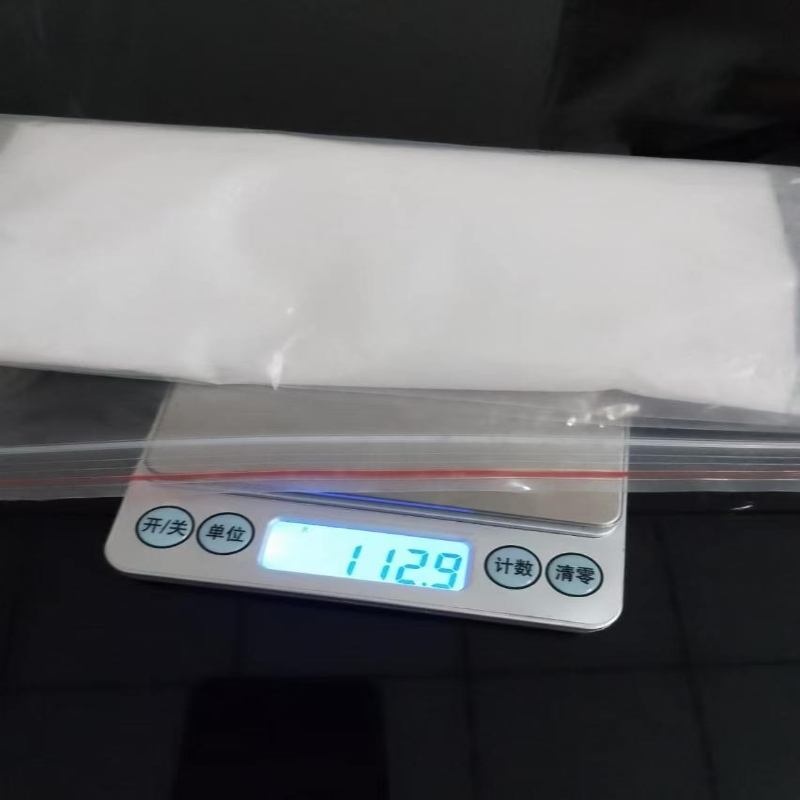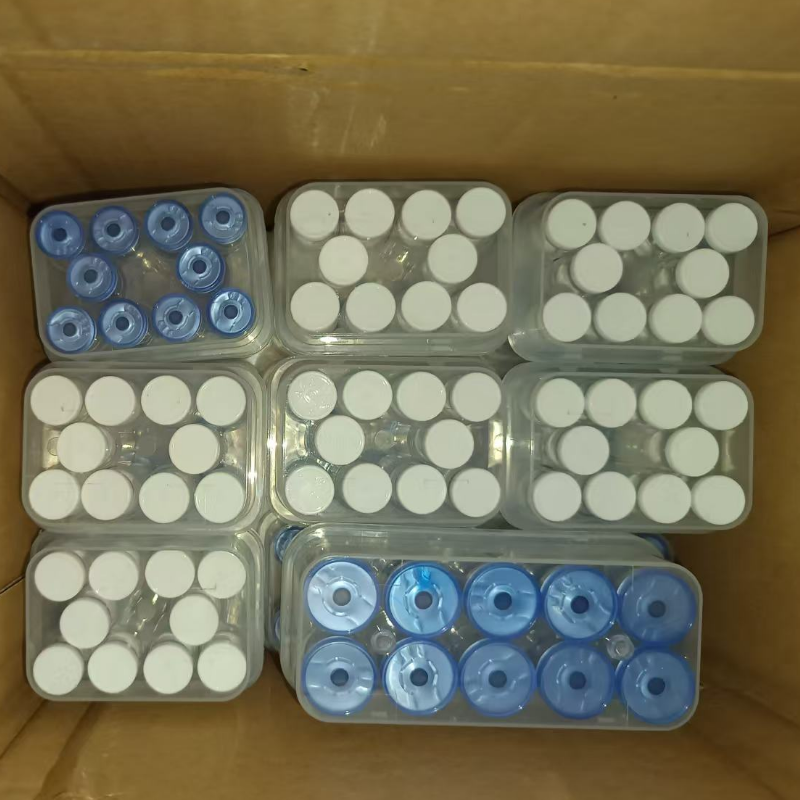-
Categories
-
Pharmaceutical Intermediates
-
Active Pharmaceutical Ingredients
-
Food Additives
- Industrial Coatings
- Agrochemicals
- Dyes and Pigments
- Surfactant
- Flavors and Fragrances
- Chemical Reagents
- Catalyst and Auxiliary
- Natural Products
- Inorganic Chemistry
-
Organic Chemistry
-
Biochemical Engineering
- Analytical Chemistry
-
Cosmetic Ingredient
- Water Treatment Chemical
-
Pharmaceutical Intermediates
Promotion
ECHEMI Mall
Wholesale
Weekly Price
Exhibition
News
-
Trade Service
29 February 2021 / -- TopAlliance Biosciences recently announced that the National Drug Administration (NMPA) has accepted its own A new adaptive application for the developed anti-PD-1 monoantigen drug Terripri monoantigen (Toripalimab®): combined chemotherapy for relapsed metastatic nasopharyngeal cancer (NPC) in advanced first-line unsyscticed treatment.
this is also the second new drug market application submitted by Junshi Bio in the field of nasopharyngeal cancer treatment.
In April 2020, Thetripri monoantigen submitted to NMPA for the treatment of relapsed/metastatic nasopharyngeal cancer new adaptations that had previously failed to receive second-line and above system treatment was accepted and was included in the priority review process by NMPA in July 2020.
is also the world's first anti-PD-1 single anti-treatment relapse/metastatic nasopharyngeal cancer new drug application.
it's worth noting that in September 2020, the U.S. Food and Drug Administration (FDA) awarded Ripley a breakthrough therapy (BTD) for the treatment of nasopharyngeal cancer.
Ripley monoanti is the first home-grown anti-PD-1 monoantigen to be recognized by the FDA's breakthrough therapy, another important regulatory milestone following the FDA's approval of the FDA's award of orphan drugs for the treatment of nasopharyngeal cancer in May 2020.
plans to submit a listing application in the U.S. in the near future, Ripley monoanti is expected to become the first overseas market to commercialize the domestic anti-PD-1 single anti-drug.
nasopharyngeal cancer (Photo: Baidu Encyclodedia) Nasopharyngeal cancer is a malignant tumor that occurs in the epithelitis of the mucous membranes of the nasopharyngeal system and is one of the most common head and neck malignancies.
, according to the World Health Organization, more than 130,000 new cases of nasopharyngeal cancer will be confirmed worldwide in 2020, nearly half of them in China.
high incidence in southern China, especially in Guangdong, with an annual morbidity rate of (30-80)/100,000 people.
patients with early-stage nasopharyngeal cancer were prone to recurrence or metastasis even after radiotherapy or contemporaneous chemotherapy, and 15% of patients with nasopharyngeal cancer found distant metastasis at first diagnosis.
for relapsed or metastatic nasopharyngeal cancer, the current treatment method is limited, the first-line standard treatment is platinum-based combination chemotherapy, the overall five-year survival is still less than 10%.
previously observed that EBV, which is closely related to nasopharyngeal cancer, induces cancer cells to express high levels of PD-L1, suggesting that anti-PD-1 monoantovirus has potential therapeutic effects in the field of nasopharyngeal cancer.
, however, no immunotherapy drugs have been officially approved for the treatment of nasopharyngeal cancer worldwide, and there are urgent and unsealed clinical needs.
application for the new allergy listing is based on data from the JUPITER-02 Study (NCT03581786).
This is a randomized, double-blind, placebo-controlled, international multi-center Phase III clinical study, led by Professor Ruihua Xu of Sun Yat-sen University-affiliated Oncology Hospital, to compare the efficacy and safety of the first-line treatment of patients with relapsed or metastatic nasopharyngeal cancer confirmed by Terripri single-unit Gisithamin/Shunplain/Shunplain with placebo.
JUPITER-02 study is also the largest phase III clinical study of the world's largest immuno-checkpoint inhibitor combination chemotherapy first-line treatment for recurrence or metastatic nasopharyngeal cancer.
Based on the results of the mid-term analysis of JUPITER-02, the Independent Data Monitoring Committee (IDMC) determined that the main study endpoint reached the optimal limit of the program preset, and the results showed that the first-line treatment of relapsed or metastatic nasopharyngeal cancer patients with Terripri monoantigen/cisplatin was significantly longer than the standard first-line treatment of Gisithamin/cisplatin, which significantly prolonged the patient's non-progressive survival.
detailed data will be published at subsequent academic conferences.
, more than 10 PD-(L)1 therapies have been approved worldwide, eight of which have been approved in China.
,000-year-old Terriple single-resistance (Tuli) was approved for sale by NMPA in December 2018, becoming China's first independently developed PD-1 single-resistance.
The first adaptive drug approved was for the treatment of non-removable or metastasis melanomas that have failed to receive systemic treatment in the past, and was recommended in the 2019 and 2020 editions of the China Society of Clinical Oncology (CSCO) Melanoma Guidelines.
Ripley single anti-injection (Toyi ®) as China's first approved listing of domestic PD-1 as the target of single anti-drug, access to major national science and technology projects support.
April 2020, a new adaptation application for the treatment of patients with relapsed®/metastatic nasopharyngeal cancer who had previously received failures in second-line and above systems was accepted by the State Drug Administration.
May 2020, a new adaptive application for® the treatment of patients with local progressive or metastatic urethra cancer who have failed or received systematic treatment in the past was accepted by the State Drug Administration.
2020, the two new adaptation applications have been included in the priority review process by the State Drug Administration.
September 2020, Toyovir was recognized ® fdable breakthrough therapy for the treatment of nasopharyngeal cancer.
currently, ® has been awarded 1 breakthrough therapy, 1 fast track and 3 orphan drug qualifications by the FDA in the fields of mucosal melanoma, nasopharyngeal cancer, and soft tissue sarcoma.
December 2020, Toyo was successfully ® a new version of the list through the National Health Care Negotiations.
Toye® since the beginning of 2016, has conducted more than 30 clinical studies around the world, actively exploring the product in melanoma, nasal The efficacy and safety of adaptive diseases such as pharynx cancer, urethra cancer, lung cancer, stomach cancer, esophageal cancer, liver cancer, bile tube cancer, breast cancer and kidney cancer are also being carried out in cooperation with leading innovative pharmaceutical companies at home and abroad, and we look forward to enough patients in China and other countries to obtain international advanced level of cancer immunotherapy.
() Original origin: Junshi Bio, <!--/ewebeditor: page->







